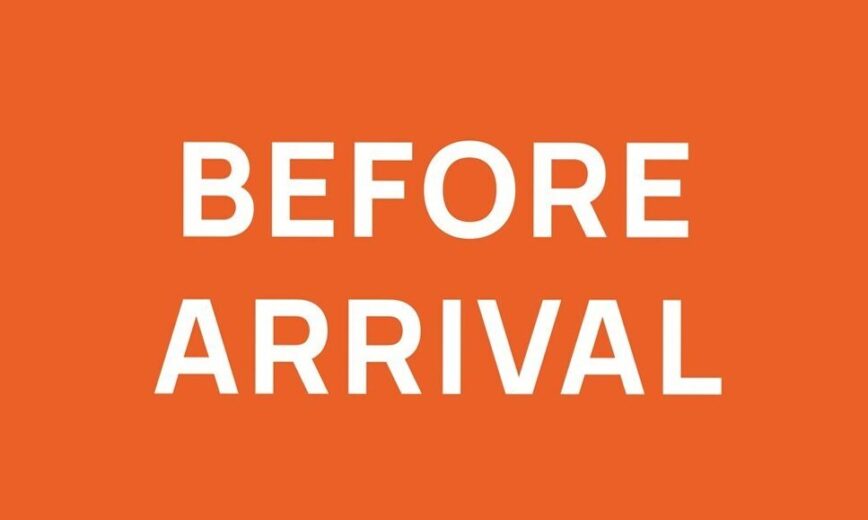Practical information
Please read the information below carefully, this information will help you as you prepare for a successful study abroad semester. Some information is applicable for all applicants, while some information is slightly different depending on if you are an EU/EEA or non-EU/EEA citizen. If there are no separate headlines for EU/non-EU students, it means that the information is for all applicants.
Learning Agreement
EU/EEA citizens
We use Online Learning Agreements (OLA); in a few simple steps you can fill in your Learning Agreement and share it with both your home institution and DMMH. Here you can access necessary background information that you need when completing the OLA.
Residence Permit
EU/EEA citizens
As an EU/EEA citizen, you do not need a residence permit since you have the right of residence in Norway. If you are planning to stay longer than 90 days you have to register with the Norwegian Directorate of Immigration online at the Application Portal Norway: https://www.udi.no/en/want-to-apply/. You have to apply as soon as you arrive in Trondheim to be granted permission of residence (Study Permit) for more than 3 months (one day more than 90 days is more than 3 months). You need to bring your passport and other relevant documents to show that you are an EU citizen.
Non-EU/EEA citizens
Citizens from outside the Schengen area have to apply for a Tourist Visa/Visitor’s visa (up to 90 days) or a Residence Permit (more than 90 days) from their country of residence.
All non-EU/EEA students must submit documentation that they have sufficient funds to cover living expenses. We refer you to Norwegian Directorate of Immigration’s webpage for required documents.
Students coming on Erasmus Global Mobility will receive a Grant Agreemement form to be filled in, and a confirmation letter from DMMH stating that you will be a receptient of Erasmus+ Global Mobility scholarship.
Police clearance certificate
The NECEC courses consists of lectures, excursions and 25 days (á 6,5 hours/day) of practical training in a local kindergarten (children aged 0-5 years). When working with children in Norway, it is required by law to provide a police clearance certificate. This certificate should be sent to us prior to arrival and the original document must be presented to us upon arrival.
To be valid, the document cannot be older than 3 months from the starting point of the practical training. In some countries, this document is easy to obtain, while in other countries it is quite time consuming. Please check the processing time in your country and plan accordingly. Student who do not hold a police clearance certificate in time for semester start will not be allowed to start practical training.
Tuberculosis status
All students have to check if they come from or have visited countries with high occurrence of tuberculosis for more than 3 months within the past three years.
If you have not been in a country with high occurance of TB, you do not have to take a TB test. You only have to fill in a personal statement about tuberculosis/tuberculin status: Personal Statement form.
If you have been in a country with high occurance of TB, you have to take a tuberculin test upon arrival in Norway. Please inform us about this as soon as possible.
Providing a police clearance certificate and a negative tuberculosis status (filled in form or negative test result) is a prerequisite for having practical training in Norwegian kindergartens. The original documents must be presented on the first day of the semester. This day you will also sign a confidentiality and non-disclosure agreement. During practical training in kindergartens you have the same duty of confidentiality as the staff in the kindergartens.
Insurance
It is mandatory to have an insurance that covers your entire stay in Norway. Familiarize yourself with the details of the insurance, so that you are sure what will/will not be covered.
Every student is responsible for having his/her/their own health insurance. EU and EEA citizens must, before going to Norway, obtain a European Health Insurance Card. This will enable you to be a part of the Norwegian National Health Scheme. Please note that services like dentists and specialized services are not covered. For other incidences, like theft and accidents, a private insurance is needed.
Students from non-EU/EEA countries have to obtain a private insurance. The insurance should cover your entire stay. Please check with your local welfare/social security agency about what coverage you have. Often, health insurances are part of travel insurance.
Notice that travel insurances for students usually do not cover pregnancies. If you by any chance should be pregnant or suffer from deteriorating health before planned departure from your home institution, DMMH cannot accept you as a student here. This is due to the responsibilities we are not prepared to take for your health and well-being under such circumstances.
Housing
If you are renting through SiT:
As an exchange student you are guaranteed housing at one of the Student Welfare Organization in Trondheim (SiT) student villages. It is SiT that is responsible for the housing. The international Office send a list to SiT with contact information of the students. You will then get an email from SiT with instruction on how to apply for housing. Do not book before you recieve information from SiT. Once you have received an email from SiT you can apply through SiT’s application portal.
PRE-ARRIVAL CHECKLIST
Please send us the following documents:
- Filled in Online Learning Agreement
- Filled in tuberculosis status form
- Police clearance certificate (please note that it cannot be older than 3 months from the starting point of the practical training)
- Flight information (flight number and arrival date and time)
- Copy of insurance and European Health Insurance Card
For information about what to pack etc. see "Settle in"

